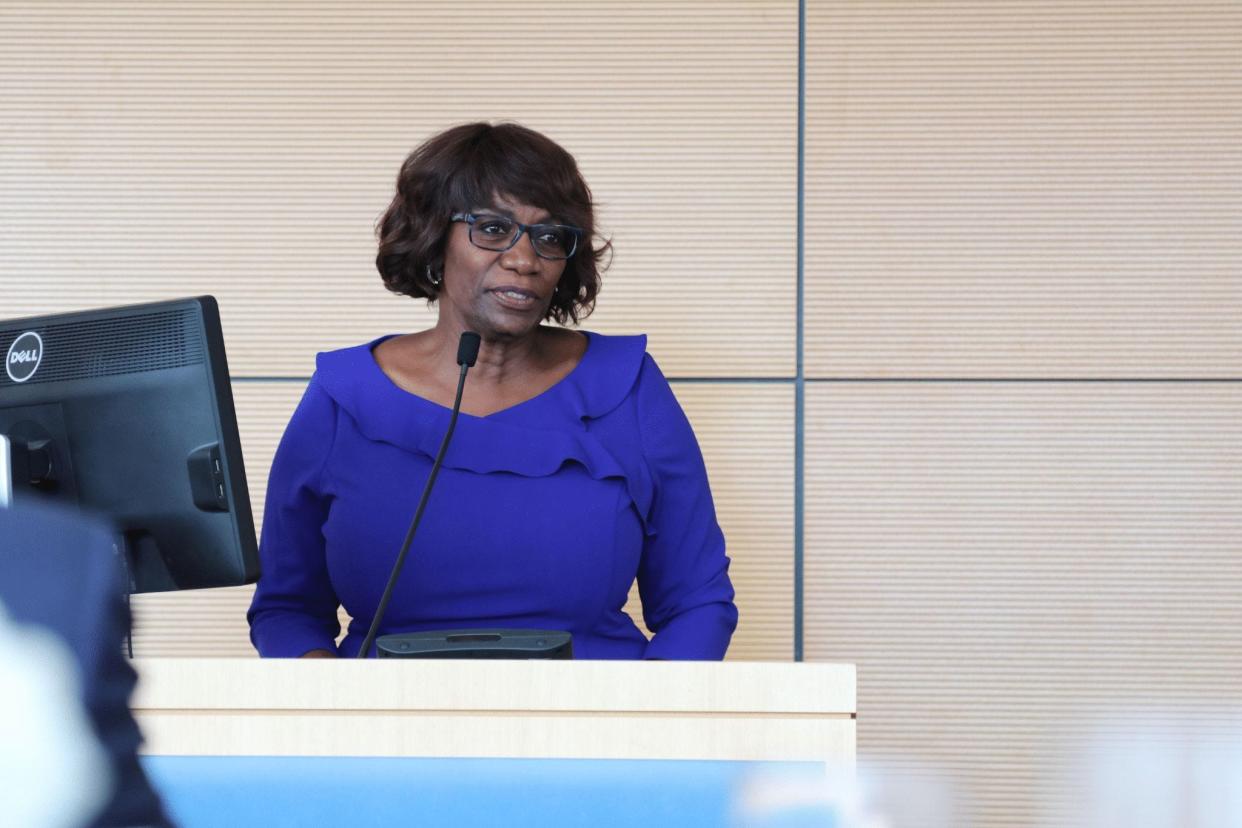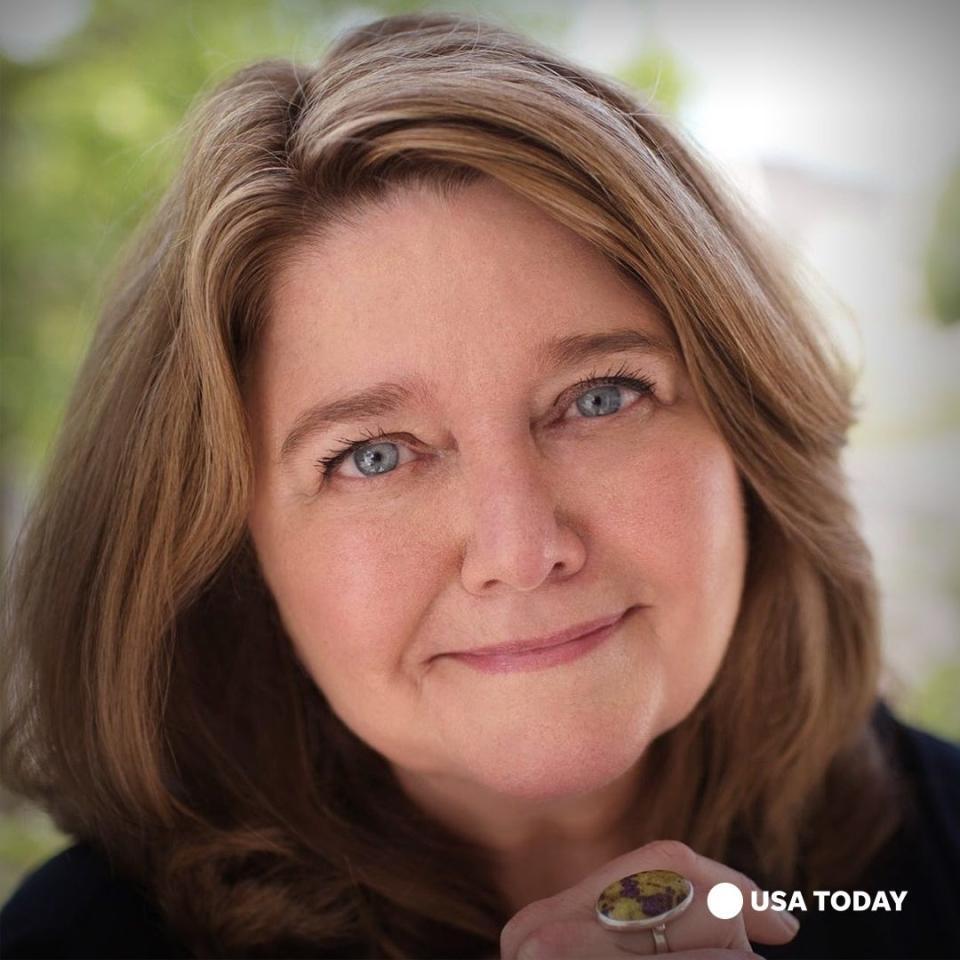We're asking people of color the wrong questions about racism

- Oops!Something went wrong.Please try again later.
In the late 1960s, Deborah Plummer was the only Black student in her class at a Catholic high school in small town Ohio. At 17, she entered a convent. She was the only Black person there, too.
Debbie was a nun for 13 years until she decided she could no longer be one. She is a now a widely celebrated psychologist and author. I have read her books and attended some of her speeches and call her my friend.
But like many of her white friends, I did not fully understand why she left the order all those years ago until three months after George Floyd was killed by white police officer Derek Chauvin.
Last August, Debbie wrote an essay for Medium titled, “Confessions of a Former Black Nun."
“I found solace not in advocating for culture change within religious life, a task that would have been impossible, but in working to be the human translator about whites for the black community,” she wrote. “I understood and made excuses for their intentions and minimized any negative impact on me or other Blacks. ...
“Thirteen years after I entered, when I told our religious superior that I wanted to leave, she was dumbfounded. ‘What will I tell the community?’ she wondered aloud, ‘you’re so popular.’ ”
Debbie said she was leaving because of racism. The woman didn’t flinch. “You knew you were Black when you entered, how has that changed?” Debbie recounted her superior's reaction. “Sister, this is your cross to bear.”
Sharing her story with the world was cathartic, Debbie said. But it was only the beginning of a shift in how she perceives her role in the world. Earlier this week, Debbie sent an email to me and another white friend, explaining why she would not be attending her 50th high school reunion.
USA TODAY's opinion newsletter: Get the best insights and analysis delivered to your inbox
She could no longer ignore those white friends’ Facebook posts about Floyd and Black Lives Matter that feel racist, regardless of intentions. And she is tired of being the one having to explain it to them.
“It leaves us with the ugly residuals and re-experiencing all of the microaggressions and racist behaviors from high school to present day,” Debbie wrote in her email. “I know that this is a common experience for Blacks and Browns who attended predominately White schools and are not attending reunions since the reign of the Trump era. We have had these conversations within our social groups.

“I’ve thought about writing about it … but am exhausted using our personal racial trauma to educate Whites. Yet, leaving it alone and not speaking out about it to Whites feels debilitating.”
I have quoted Debbie at length here because the last thing she needs or deserves is my speaking for her. I am writing this column because, as a white woman lucky to be her friend, it is the least I can do. For so long, Debbie has been trying to help us find a better version of ourselves.
Less than a month before the pandemic paralyzed our country, Debbie drove on a cold and snowy night to the diverse development where my husband and I live in the city of Cleveland. She was there because another white friend, the Rev. Kate Matthews, had invited her to lead a discussion about racism. It was the conversation we needed to be having.
More than 222 homes shared the same ZIP code, but we were increasingly residing in our own worlds. Many white residents were unaware of increased instances of racism in our “intentional” community, as we like to call it. Waving hi as we pull mail out of our curbside boxes and joking about the weather on evening walks might make us pleasant neighbors, but it doesn’t make us good friends.
About 60 of us – half Black and brown, half white – showed up at the community center. Watching Debbie in action drove home, to me, the importance of patience when listening to how others see us. She repeated her mantra from years of public speeches: "How do we turn ‘them’ and ‘we’ into ‘us’?"
Seventeen months later, Debbie is seeing her role differently. “Young Black people aren’t as invested in white comfort,” she told me in a Zoom call earlier this week. “I’m from the old tradition of talking to White people: ‘I have to take care of you to take care of me.’ The emphasis is on you.”
She is exhausted, she told me, from being held up as that one Black person other white people can say they know. “This is a huge shift for me, for the space I’m in. Wanting to have my racial identity be representative, and have people understand me as Debbie. Debbie as a Black human, and not an exceptional Black woman.
“Good-intentioned Whites think their reality is your reality. But racism in America is trauma. I used to try to use gentler terms because people think you’re being extreme. But you see those Facebook posts and we’re still supposed to ...” She shook her head. “I can hear them saying, ‘But Debbie, we love you.’ They’re not connecting the dots. They’re not seeing me as my full and authentic self.”
When Floyd was killed, white friends called her to ask what they could do to protest. It was the wrong question. “I wish they had asked, ‘How does this land on you, Debbie?’ ”
Our conversation left me with questions I wish I had already been asking my friends: What is it like for you to be Black in America? To be brown in America? To be Asian? Is there stuff you keep from me? What do I not understand about what it means to be you?
“I would welcome that,” Debbie said. “Most of my friends would, too.”
There’s only one way to find out, starting now.
Connie Schultz is a columnist for USA TODAY. She is a Pulitzer Prize winner whose novel, "The Daughters of Erietown," is a New York Times bestseller. Reach her at CSchultz@usatoday.com or on Twitter: @ConnieSchultz
You can read diverse opinions from our Board of Contributors and other writers on the Opinion front page, on Twitter @usatodayopinion and in our daily Opinion newsletter. To respond to a column, submit a comment to letters@usatoday.com.
This article originally appeared on USA TODAY: Racism: These are the questions I should have been asking

